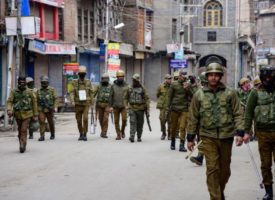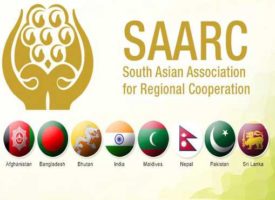Balochistan is the largest province of Pakistan and ironically one with the least inhabitants. With a combined area of approximately 347,000 square kilometres, it is home to deserts, coastal belts, plateaus, mountains and oases littered across the vast expanse of mud, sand and hot air. The tribes which live here have been part of this land for thousands of years, wandering here and there as nomads. There are hundreds of Baloch tribes and sub-tribes, most prominent among them being the Bugti, Mengal and Marri tribes.
We have long been hearing news reports about attempted militant attacks in Balochistan that are aimed at blowing up gas pipelines, educational institutions, targeting academia and non-Balochis, especially Punjabis. The reasons for this are many; here I will only discuss the core issues in a casual perspective for easier understanding.
Balochistan is a land blessed with innumerable mineral and energy resources. Trillions’ worth of coal, gold, copper and gas lies underneath the province which makes it an object of desire for energy giants around the world. It is true that in some countries, large energy-hungry corporations drive its foreign policy. In this regard, the US, UK, Russia, Iran, Arab Gulf states and China all have vested interests in Balochistan. But the most nefarious involvement of all has come from Pakistan’s arch rival India, which wants to ‘liberate’ the province from mainland Pakistan just like it trained Mukti Bahini rebels to mount an offensive against the East Pakistan regime.
The Baloch way of life centres around tribal elders called “sardars” who are to be respected and obeyed at all costs. This is because of the central belief among ordinary Balochis that their tribal chieftains will develop their land, provide them with food and resources and shield them from hostile foreign elements. To this very day, the hearts and minds of semi-literate and illiterate Baloch people are under the control of their respective tribe’s sardars. Despite knowing that their sardars are in self-exile in the UK, Switzerland and elsewhere living posh, elitist lifestyles in air-conditioned rooms and travelling in expensive cars, they still exhibit strange obedience for their chieftain. If, sitting abroad, he issues a call to pick up arms against the state, they will not hesitate; in fact, this is what they have been doing time and again.
‘An enemy’s enemy is a friend’; thus goes an old saying. Certain tribal chieftains have been prompted to re-ignite the independence debate after nudges by foreign powers who assure them of a future role as leader of a separate state; among the countries luring sardars in self-exile into this fold are India, the UAE, Saudi Arabia, Afghanistan and the US.
India is hungry for energy resources and this is why it is focused on making inroads into the Central Asian Republics (CARs) to satiate its requirements. It is already making efforts to curtail any pro-Islamabad sentiments in Kabul hence supporting Balochistan naturally gives India a sizeable buffer zone to cross back and forth from Balochistan to the CARS via the Arabia Sea and vice versa.
Keeping CARs aside, Balochistan itself is brimming with so many resources that India won’t have to look any further. As in the case with Hamid Karzai and his friends in Northern Alliance, India is luring Baloch sardars to favor India and be in its ‘good books’ so it can offer them lucrative, powerful positions in the future of ruling an ‘Independent Balochistan’. Another benefit which India sees in “liberating” Balochistan is to choke the supply of natural gas to the rest of Pakistan. At present, India already exercises hegemonic control over waters that flow into Pakistan. In this way, India hopes to suffocate Pakistan’s needs to the point of submission; a foolish dream indeed!
Gwadar port is destined to become the most strategically-important deep sea port in the entire Arabian Sea/Indian Ocean region. Some analysts even suggest that Gwadar port could become the most important deep sea port in the Eastern Hemisphere. India naturally feels threatened, that is why it has invested in, and partnered with port authorities in Iran’s Chabahar port to develop the infrastructure for an alternative sea-to-land route on war footing. Co-existence of Gwadar along side Chabahar is also not a viable option for India as New Delhi fears the transformation of Gwadar into a purported Chinese naval base.
Pakistani naval and maritime forces already have a growing presence in Gwadar and adjacent areas such as Ormara where the navy’s largest base in being built. More interestingly, Pakistan’s space program has an important installation at the Jinnah Naval Base in Ormara from where space vehicles are often launched. Thus the “liberation” of Balochistan will most certainly favor India politically, militarily and economically.
As for Arab Gulf countries, Gwadar is a threat to their otherwise influential control over the regional trade markets, especially with regards to the transportation of oil, etc. With a neighborhood that will have a strengthened Balochistan, the State of Pakistan will ultimately become a protector of the region’s waters. As in the past, Pakistan has been playing its due role in ensuring that the sea routes are open for all countries, actions are taken against pirates and narco-traffickers and that no one country in particular tries to vie for dominance in the seas. Pakistan Navy is a pivotal member of the international Combined Maritime Forces (CMF) Task Force.
For the Arabs, Balochistan under the State of Pakistan is also a nuisance because Pakistani authorities have been apprehending Al Qaeda, Jundullah, Lashkar-e-Jhangvi, Jaish-ul-Adl and other terrorist elements which commit sectarian killings and try their best to prevent any Gulf-sponsored proxy militant groups from making incursions into Iran. Most importantly, and this is perhaps the most genuine reason for Arab Gulf countries’ interest in Balochistan: the province’s mass potential of resources, still largely untapped, is much larger than that in Arab Gulf countries combined and poses financial and strategic threats to Arab monarchs and their business interests.
Afghanistan’s intelligence service, the National Directorate of Security (NDS), has interests in destabilizing Balochistan so it can provide easily logistics facilities to the TTP, assets which it controls along with India. The NDS also relies on banking from clandestine narco-trade to sustain its black operations inside Pakistan and elsewhere. Fundamentally though, NDS acts at the behest of India’s intelligence agency Research & Analysis Wing (RAW) to ensure a safe presence of dozens of Indian consulates lined up near the border with Pakistan. These consulates are mostly safehouses where state-of-the-art espionage equipment is installed and guerrilla warfare training is imparted to proxy militant groups against Pakistan.
Some might suggest that China has vested interests in Balochistan too. The answer is: yes, it does. But our Chinese friends have announced this openly, in direct talks because China believes in the policy of developing friendly relations with its neighbors. Unlike India, the Afghans or Arab Gulf countries, it does not hide its needs under false guises of diplomacy, handshakes and devious smiles. Beijing has made it clear that it has interests in securing an outreach into the Arabian Sea/Indian Ocean and who better to provide this than its own friend in Islamabad. China, as Pakistan’s ‘Iron Friend’, has vowed massive investment (initial sum of $46 billion) by building the China Pakistan Economic Corridor (CPEC). The addition of Gwadar port also plays a fundamental part in China’s Maritime Silk Road Initiative to foster a sense of shared, open-for-all maritime trade and economic activities in the region.
The US has no particular interest in Afghanistan except perhaps because of its resource value in the future as a single-entry gateway into the CARs and role of Gwadar port in future sea wars (many analysts believe the wars of the future will be fought in the seas).
It is Balochistan because of which Pakistan has its “strategic importance”. If there was no Balochistan, the State of Pakistan would not have received the immense importance and significance it does today among the global geostrategic/geoeconomic communities. It is true that so far, successive governments in Pakistan have been unable to provide basic facilities to the people of Balochistan. This can be attributed mostly to criminal negligence rather than intentional designs.
Pakistan’s security forces, particularly the army and the Frontier Corps (FC), are leading efforts to crush the foreign insurgency in Balochistan and preserve its accession to Pakistan. These military forces alone cannot keep upholding this responsibility as they have much important issues to focus on. They do not wish to interfere in civil matters but what option do they have when the civilian governments, both in the province and federation, are themselves not serious in making any meaningful changes to the rotten system?
Presently, the government of Balochistan Chief Minister Dr. Abdul Malek has done some mentionable services for their people. The army and FC are already doing their part. The federation will have to ensure that all rights due to Baloch people are given so that their hearts and minds can be won in the truest sense; otherwise, hostile foreign powers are already waiting since long to pounce on Balochistan at the right moment and “break it off”.








A middle power has sufficient strength and authority to stand on its own without the need of help from others. They are instruments of the other powers and may at times be dominated; but they cannot be ignored.
Dear Khalid…Good information shared but i have a few questions regarding the details you have mentioned on your article above .
1. You have been saying that India has been trying to break Balochistan from Pakistan since long time, but have you ever caught an indian terrorist or indian trained or sponsored terrorists from Balochistan like we have done in Mumbai where Ajmal Kasab have openly confessed that he is a pakistani terrorist trained by ISI and Hafeez Saeed..?..Right now we got 1 more guy from Kashmir, Rana Naved from faisalabad..!!!…and many more to come..
2. If you believe India has been involving in Balochistan, its shows Pakistan’s inefficiency..Pakistan have Balochistan with it for last 68 years, till now no Political Leader from Balochistan have been given chance in the mainstream Pakistan politics nor the Balochs are given chances in any fields, such as sports, films,and other state related mainstream welfare programmes.
3. All the other provinces were looting Balochistan and its resources, since 1947..They get a mere 2% share of the revenue, which the Pakistan government get from the total Balochistan Province, clearly a step-father attittude.
4. The urgency from Pakistan government and army now is that, they fear another 1971 will occur..Pakistan should always remember that in a democracy, if you don’t respect people, they can turn against you and choke you out, same as what led to the formation of Bangladesh.
5. India has always helped when help is being asked, even if from a foreign land..Remember all the bangladeshi people were east pakistanis when they sought india’s help against their government..That tells the story..
6. You may well remember the cruelities done by the pakistani forces to its own people in east pakistan when they brutally raped women and killed almost 3 million minorities..You may also remember the entire pakistani troop so 90000 soldiers under Lieutenant-General A A K Niazi begged on the foots of Indian army to stop the war..
7. If India decides to take away Pakistan, India will do it at any cause how much loud you shout like Pakistan is also a nuclear power and so on..But we will never do, as India in its existence of 5000 years has never attacked any foreign land besides being such a super power.We respect people and their aspirations,
8. One more remainder, don’t be too excited with China’s friendship, you will understand once China makes Pakistan its colony like Vietnam, Tibet,Hong Kong, Taipei etc ..when it complete all their bases in Pakistan..Pakistan is only a gateway for China to enter the Central Asia which is now a strong hold of America..Once you realise the truth, you could only cry for help, as even your Big brother( as you portray) Saudi Arabia won’t mind you since its already with America..
9. Finally to conclude, Pakistan has no right to tell regarding terrorism, since you are the Production house of all terrorists that are active in the world today, especially in South Asia..
Regards,
Varun Mohan, India
Dear varun mohan
I Fully Understand That Gwadar And CPEC Is Giving You Indians Sleepless Nights But Lets Get Some Things Straight.
1.The Tales of ‘Atrocities’ By Pak Army Have Been Disproven By Many Bengali Intellectuals
2.It Is Not Pakistani Government That Has Been Looting Balochistan It Is Their Corrupt Tribal Sardars
3.You Say That India Comes To The Help Of Any Nation That Has Asked Help So The That Means That We Pakistanis Should Also Help The Poor People Of Assam Khalistan Seven Sisters And Kashmir To Free Them From Indian Atrocities
4.You Indians Accuse Us Of Looting Balochistan But You Have Done The Same Thing To Assam Seven Sisters Chattisgarh And Jharkand
5.The Fairy Tales Of ‘Atrocities’ Committed By The Pak Army Even If True Pale In Comparison to What Indian Army Has Done Throughout The Length And Breadth Of Their Country
Regards
Only Pak Army is working hard to support and teach the people of Balochistan.Now the Balochis are cooperating…
Our government is still slow in that case ..
The powers mentioned above were stopping previous governments by hook or crook..
But CPEC changed the previous situation of Balochistan._
If the meaning of support and teaching in your language is Bombing, Burning the villages, killing and genocide then you are right.
let the media show the picture and then you will see what is going right now in occupied Baluchistan from 68 years ago.
Regards,
Abdul Rais
Aligarh Muslim University Aligarh, UP, India
Only Pak Army is working hard to support and teach the people of Balochistan.Now the Balochis are cooperating…
Our government is still slow in that case ..
The powers mentioned above were stopping previous governments by hook or crook..
But CPEC changed the previous situation of Balochistan..
A very compact article that draws a very true image of situation in Balochistan, I am from balochistan and i can surely say that this article is perfectly based on truth.
May Allah bless our Pakistan and Pakistan Army.
Balochistan Zindabad, Pakistan paindabad
Viry viry nice
Sir after reading ur well knitted article, few questions have popped up in my mind.
1. What has been keeping us away from investing into Baluchistan?
2. When Baluchistan is turning out to be the life line of Pakistan, then why have we waited for so many years to initiate amends and conciliatory steps.
We have always displayed aur weakness at international level to project our case with world community. Steps initiated in 13-14 by Nawaz government are in right direction,but Wt about the control of people ,who r still under the psychic control of their tribal elders.
Dear Bilal,
Thank you for expressing your interest in our article and asking relevant questions. Answers are as follows:
1) Official negligence and an unbothersome/non-serious attitude on behalf of civil governments have prevented meaningful or if I may say “impactful” investments in Balochistan.
2) Pakistan has been aware of Balochistan’s significance since its independence. Sometimes the right time is far away.
As far as ceasing the ‘psychic control’ of people blindly following their tribal elders, I believe hearts and minds can be easily won through proper, full-scale development and employment opportunities.
I hope this helps. Regards.
It is one thing to write a researched atricle and another thing to just sit and write what ever comes to the mind. Poor research.
Dear Naukhaiz,
I respect your opinion. It would be nice if you respected mine too. This article is an ‘Opinion’ piece and not a detailed feature report, which would certainly require necessary citations and references.
Regards.
Thanks Sir Z khan its so informative and 100 % true.